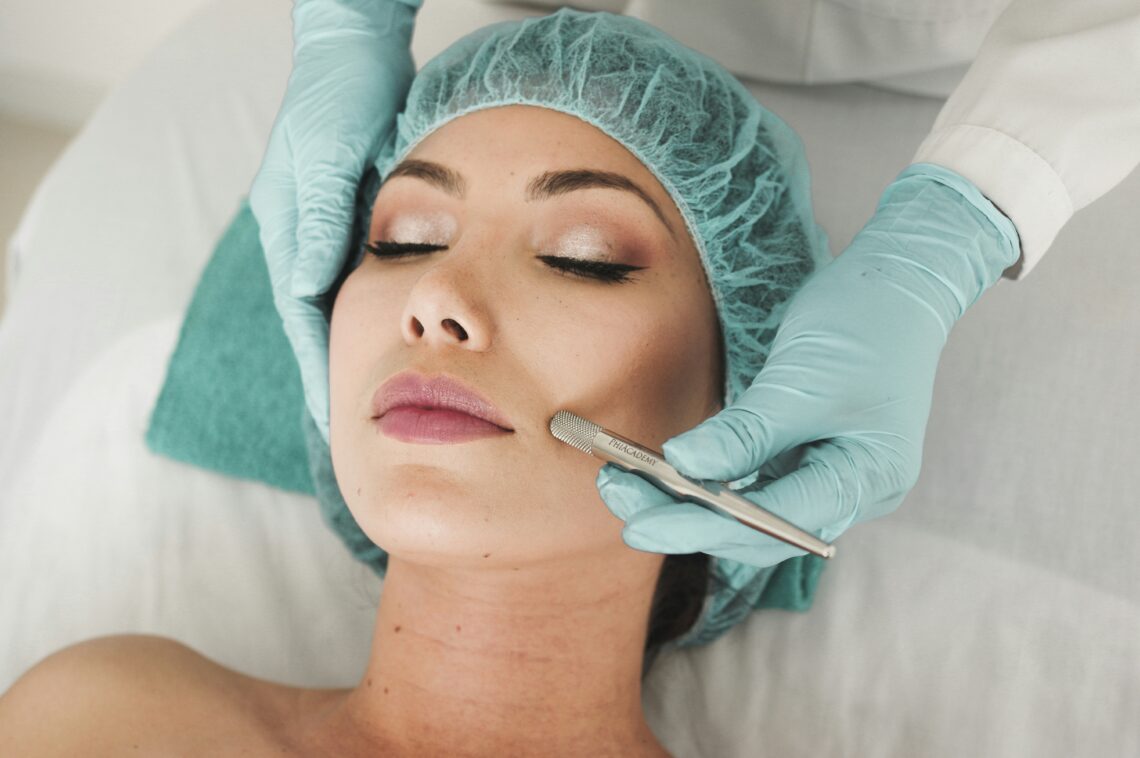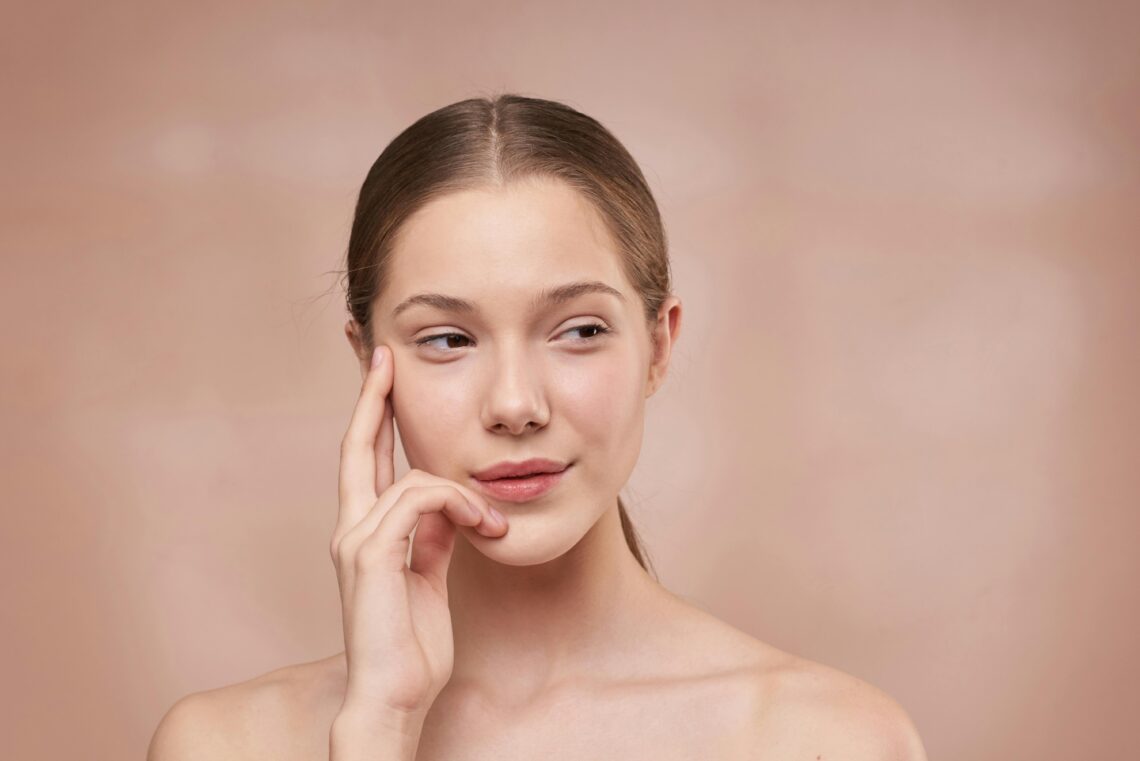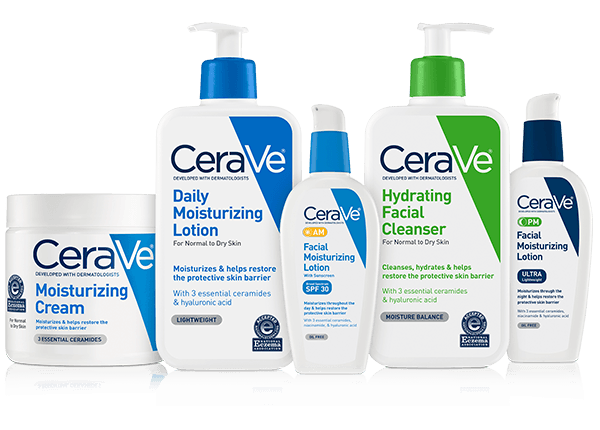Artificial intelligence (AI) is everywhere these days—from smart assistants like Siri, Google Assistant and Alexa to automatic machine such as self-driving cars. But now, AI is also making its way into your skincare routine. Many apps and tools claim they can scan your skin, spot problems, and even suggest treatments—all without seeing a real dermatologist.
So here’s the big question: Can AI really replace a dermatologist or even dermatological therapy?
In this article, let’s find out the fact of what AI can and cannot do in skincare and skin health, and why dermatologists are still playing an important role for professional recommendation and treatment.
What is AI in Skincare?
Artificial Intelligence (AI) in skincare means using technology that learns from data. For instance, by scanning skin images, AI can analyse those images and offer personalised skincare advice and tailored skincare product recommendations. So, AI in skincare usually comes in different forms, for example:
- Mobile Apps: These mobile apps utilise image recognition and machine learning to analyse your skin from a selfie or scanned photo.
- Online Tools: These online AI systems may ask a few questions about your skin or analyse your answers and photos to offer tailored skincare routines or skincare product matches.
- Smart Devices: These are physical skincare gadgets with AI-powered sensors or cameras that help track skin condition, hydration, or pigmentation.
These technologies use big amounts of data and smart algorithms to look for patterns in your skin, such as acne, wrinkles, dark spots, and more. For example, an AI app might analyse a photo of your skin and tell you that you have oily skin with clogged pores, then recommend a personalised cleanser and serum to tackle this skin problems.
What AI is Doing Well?
AI has made some exciting progress in skincare, especially in the following areas:
- Quick Skin Checks
Some apps can tell whether a mole or skin spot looks suspicious. In some cases, these tools have been shown to be as accurate as skin doctors when it comes to identifying risks like skin cancer. For example, the SkinVision app uses AI to scan moles and gives users a risk rating. This AI implementation is good for early warning signs, basic checks, or when it’s hard to see a dermatologist.
- Skincare Product Recommendations
AI can also help choose the right products based on your skin type. Tools like HelloAva would ask a few questions or skin consultation, in order to suggest suitable moisturisers, cleansers, and serums that tailored to your needs. This is good for beginners who are overwhelmed by too many skincare product choices.
- Tracking Progress
AI can track how your skin changes over time. If you’re using a new acne cream or serum, an app might take weekly photos and analyse them to let you know if your skin is getting clearer or drier. This Al assistant is good for staying consistent and noticing results that you might miss or neglect.
Can AI Replace a Dermatologist?
The Rise of AI in Skincare
Artificial intelligence (AI) is revolutionising many industries—including skincare and dermatology. From smart apps that scan your skin to online tools that recommend personalised skinccare routines and even skincare products that are ideal for your skin type.
But here is the question many people may doubt: Can AI actually replace dermatologists or therapy? The short answer is: Not yet—and maybe never.
Early Detection and Skin Tracking
According to TechRound and the London Dermatology Centre, AI has made impressive progress in diagnosing skin conditions using image recognition. Today’s AI tools can analyse your skin through selfie or skin photos to detect issues like acne, rosacea, or even melanoma, and provide suggestions or recommendations instantly. Some studies aslo have shown that AI algorithms can match or even slightly outperform dermatologists in spotting certain skin cancers when image quality is high.
What AI Still Cannot Do
While the early detection and skin tracking sounds impressive, there’s a catch. AI tools rely heavily on the quality of data. Most of these systems have limitations on detecting or analysing skin tones, in terms of they may miss or misread skin conditions. On top of that, AI also cannot feel the skin’s texture, examine the entire face, or understand deeper context like, stress, allergies, or diet which are also the key factors that a professional dermatologist would consider during in-person skincare consultation.
More importantly, AI is not yet capable of building trust, offering emotional support, or customising treatmentsbased on individual lifestyle and personal preferences. It also can’t prescribe medications or manage complex conditions like eczema or immune-related skin diseases.
AI does shine in supporting dermatologists and improving access to basic skin assessments. AI-powered apps and platforms can screen for issues, monitor changes over time through photo tracking, and help people get advice faster—especially in where dermatologists are not available. In this circumstance, this helps free up professionals to focus on more serious or personalised cases.
AI as a Partner, Not a Replacement
As the London Dermatology Centre points out, AI should be recognised as a complementary tool rather than a competitor. Think of it as a way to enhance care and further assistance, not replace it. AI can streamline diagnostics, improve efficiency, and even reduce waiting times, but it can’t replace the knowledge, experience, and human touch of a professional skin doctor.
In conclusion, AI in skincare is exciting and helpful—but it’s not a substitute for seeing a professional dermatologist. For now and into the future, the smartest approach is to use AI as a guide, but trust a dermatologist for personal care that is safe.
Final Thoughts
If you have ongoing skin issues, here’s how tips to use AI as a guide or assistant,
- Use AI tools for product tips and skin tracking
- Try a trusted skincare app to check moles or acne progress
- Don’t skip dermatological therapy—especially for rashes, infections, or long-term concerns
AI can be a great first step, but it’s not a substitute for professional care and therapy.
Artificial intelligence is making big waves in the skincare world. It can scan your face, recommend products, and even spot skin issues—all from your phone. But no matter how smart the tech gets, a real dermatologist still offers things AI can’t: experience, judgment, and human understanding.
So the future isn’t about choosing between AI and dermatologists—it’s about letting them work together to give you the best care possible.




